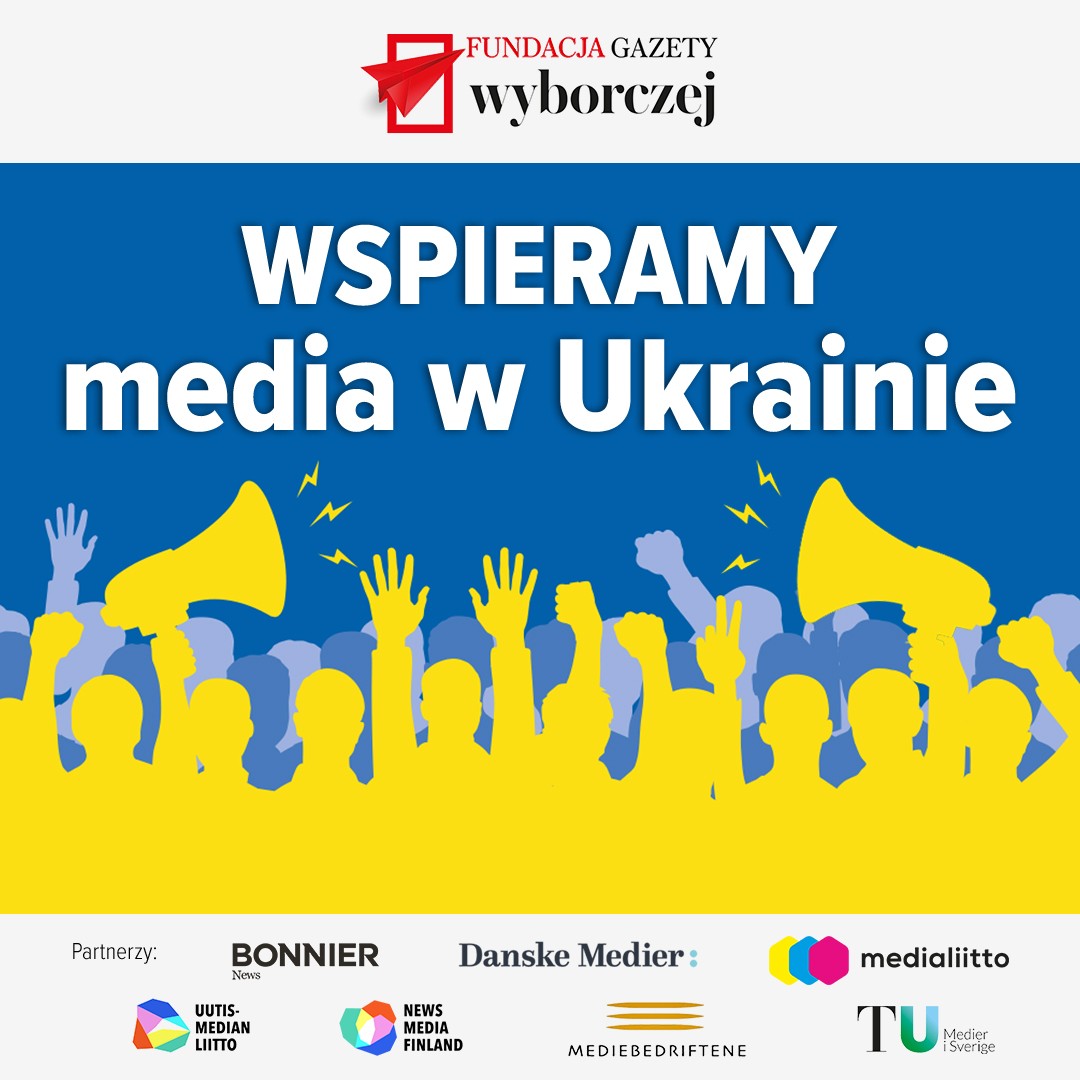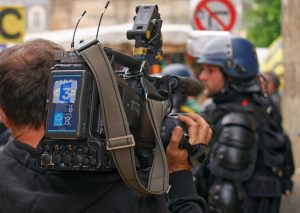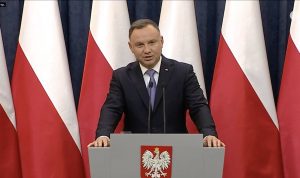London – For her fight against censorship and her commitment to independent journalism, Gazeta Wyborcza from Poland won the Golden Pen award for freedom of the press, announced during the World Congress from Mídia de Mídia by the World Association of News Publishers (WAN-IFRA). Notícias ending this Friday (30) in Zaragoza, Spain.
The newspaper and its associated foundation became known as “a beacon of independence and a bulwark against authoritarianism, for showing their values in their pages every day, and also for solidarity with journalists beyond the borders of Poland.”
After the occupation of Ukraine by Russia, the foundation created a program to support the Ukrainian media and journalists from the neighboring country working in the war zone, providing equipment, logistical support and relocation with the support of major European media and non-governmental organizations. in other countries.
Forced Censorship in Communist Poland
Gazeta Wyborcza, first published on May 8, 1989 under the slogan “No freedom without solidarity”, faced strong censorship and played a vital role in society’s rejection of the country’s communist leadership.
It has since established itself as a pillar of independent journalism, responding to constant attacks.

Piotr Stasiński, former deputy editor-in-chief and current board member of the newspaper foundation, who received the award on behalf of Gazeta Wyborcza’s editorial staff, said:
“Under the command of PiS [Partido Lei e Justiça] Freedom of the press has been seriously violated in Poland. We are seeing an increasing “calm effect” and a decreasing number of free and independent media.
Recent events in Poland are a reminder of how independent Hungarian media was suppressed by Viktor Orban’s government.”
He stressed the importance of the paper’s mission “in a troubled country in an increasingly troubled world.” And he said the award helped the paper persevere.
“The Golden Pen awards embody a set of values that support our industry,” said Warren Fernandez, executive editor of The Straits Times in Singapore and chairman of the World Editors Forum, announcing the award, which was created and awarded in 1961. yearly.
“Increasingly challenged, these values are supported by journalists and editors around the world who recognize the importance of free media to the well-being and smooth functioning of our societies and democracies.”
Also Read | World News Day: See the best and worst countries for press freedom
Foundation leads Europe’s efforts to support Ukraine
Faced with major challenges in delivering reliable news in a country where the media is often the target of attack, Gazeta Wyborcza established its Foundation in 2019 to secure the future of broadcasting and strengthen quality journalism.
His projects denounced neo-fascist organizations, fought against disinformation, polarization and xenophobia, and promoted investigative journalism in the local and regional media in Poland.
“The worsening state of Polish democracy means that civic engagement is needed more than ever before,” said Joanna Krawczyk, Chairman of Gazeta Wyborcza Partnerships and Chairman of the Gazeta Wyborcza Foundation.
At the Golden Pen ceremony, Krawczyk reiterated his commitment to supporting journalism in Ukraine:
We will not leave any independent media organization subjected to persecution alone.”
The aid fund for the country occupied by Russia has a capital of 410,000 Euros, which consists of donations from the newspaper itself, the public and its partners.

The funds are used for the purchase of necessary equipment for journalists working in war zones, financial support for journalists and media organizations in Ukraine, and transport of journalists to Poland and other European Union countries.
The initiative was created together with European organizations such as the Swedish Media Publishers Association, the Danish Newspapers Association, the Finnish Media Federation, News Media Finland and the Norwegian Media Companies Association.
It has also received support from other European media and cultural organisations, such as the European Cultural Foundation and media groups from Finland, Norway and Sweden.
Poland’s First Uncensored Communist Newspaper
Gazeta Wyborcza was the first legal publication in Poland that operated outside the control of the government during the communist regime and contributed to its overthrow.
In the early 2000s, it became one of the country’s best-selling newspapers, cementing its position as a tool for keeping Polish democracy under constant surveillance.
As one of the few independent news headlines left in the country, as WAN-IFRA points out, “the newspaper is under constant attack by a government hostile to independent news.”
According to the organization, the Law and Justice Party turned its attention to private media after it took over the state media, which lost its independence and began to be used to spread pro-government rhetoric.
Gazeta Wyborcza, one of its main targets, faces legal and financial pressures. The publication faces nearly 100 lawsuits, but continues to challenge the Polish government’s censorship and persecution.
“Gazeta Wyborcza and the Gazeta Wyborcza Foundation are guiding us. […]it actually shows that there is no “freedom without solidarity”.
Censorship in Poland also targeted American TV channel Discovery
Efforts to censor and harass independent media outlets that do not follow the Polish government’s rhetoric turned into a diplomatic incident in 2021.
In December, Poland’s parliament passed a media law that would compel American Discovery to sell tvN, the news channel that broadcasts the country’s main evening TV news.
When the bill was introduced, protests took place in the streets. The United States and the European Union opposed the law. Ten days after it was approved in the legislature, President Andrzej Duda vetoed the regulation.
Also Read | US and EU pressure leads Poland to veto media law to force Discovery channel sale
source: Noticias

